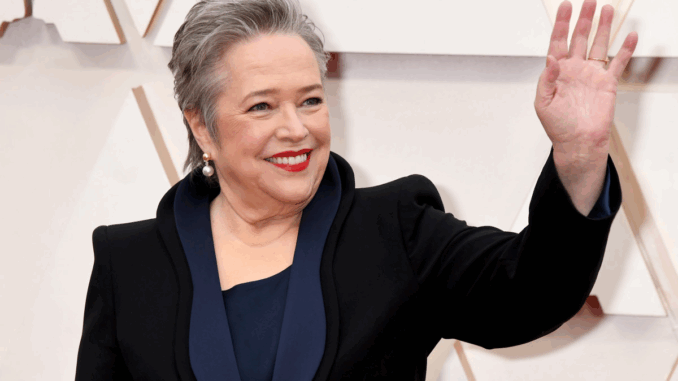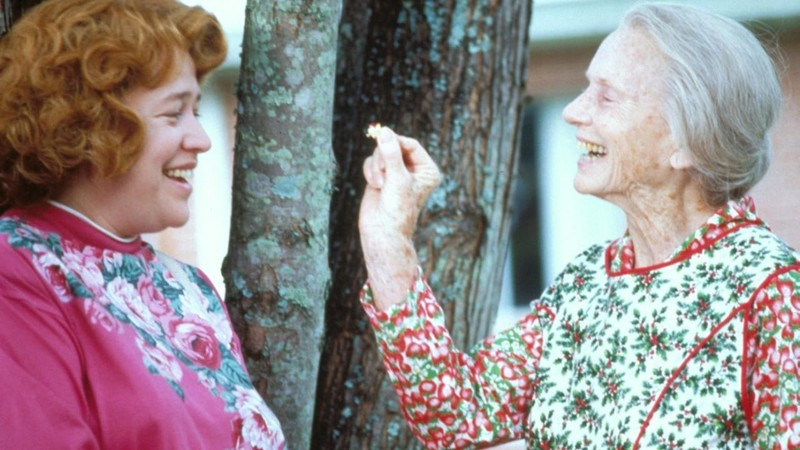
Ever heard an actor publicly say they regret a role? It’s rare. But Kathy Bates did just that. Despite her towering career including an Oscar win she recently expressed disappointment with her performance in Fried Green Tomatoes. This admission gives us a unique look behind the curtain of fame, craft, and self-critique. Let’s dive into why Kathy feels this way, what it says about her journey, and what we all can learn.
1. Who Is Kathy Bates?
Kathy Bates is a powerhouse. Starting in theatre and television, she broke out in film in her forties and won the Academy Award for her role in Misery. Her career spans decades, genres, and media.
She built respect not just through star roles but by bringing honesty and depth to every character.
2. The Role in Fried Green Tomatoes
In 1991, Kathy took the part of Evelyn Couch in Fried Green Tomatoes, a film that blended Southern charm, friendship, and personal transformation. The movie was beloved by audiences and remains a classic.
She worked with icons like Jessica Tandy, and it seemed like everything was falling into place.
3. The Confession: Why She Regrets It
Here’s the twist: Kathy herself said she felt she “didn’t do nearly enough” in the role. She admitted that her head was somewhere else—caught up in the aftermath of Misery and the press tour that came with it.
She reportedly said she had “no clue” how to handle fame then, and it affected her ability to fully inhabit Evelyn’s character.
4. The Pressure of Sudden Success
Winning an Oscar is a dream come true—but it comes with its own baggage. Kathy has described feeling unprepared and “like a country bumpkin” when she entered that arena. The public expectation, the media scrutiny, the shift in roles—all of it can drain an actor’s creative focus.
It’s easy to see how this pressure translated into her feeling less than she could have been in Fried Green Tomatoes.

5. What She Thought She Could Have Done Better
Kathy pinpointed several things:
-
She felt she didn’t fully connect with the southern-woman nuance of Evelyn.
-
She was distracted by external commitments and the momentum of her career rather than grounded in the role.
-
She sensed a missed opportunity: the storytelling in Fried Green Tomatoes was rich, and she believes she could have reached deeper.
6. Why the Role Was Important Nevertheless
Even with her regret, the film remains significant:
-
It offered a narrative of self-discovery and friendship, themes Kathy resonates with deeply.
-
It expanded her audience beyond horror and dramatic arcs into more mainstream, emotional territory.
-
It placed her alongside seasoned actors and allowed her to explore a gentler, more reflective character.
7. The Mixed Emotions of Stardom
Kathy’s story highlights how success can feel lonely. On one hand she had acclaim, respect, and box-office visibility. On the other, she felt unprepared, unsettled, and insecure in her own skin.
The gap between external triumph and internal satisfaction can be wide—and she says she stepped into that.
8. How This Fits Her Bigger Career Narrative
Look at Kathy’s full arc: she was a theatre actor, character actor, then a breakthrough star, then someone always reinventing. She tackled horror (Misery), comedy, drama, TV. She survived health issues and kept evolving. Regret about one role doesn’t undo that—it underscores how thoughtful she is about her craft.
9. Lessons for Actors and Creatives
From Kathy’s reflection we can glean:
-
Always stay present in your role—mind, body, emotion. Distraction chips away at authenticity.
-
Success doesn’t guarantee creative satisfaction. Ask yourself: Am I doing this for me, or because I can?
-
Regret isn’t failure—it can be insight. Acknowledge it, learn, move on.
10. Why Fans Still Love Fried Green Tomatoes
Despite her own critique, the film resonates. Why?
-
It speaks to transformation, friendship, and identity—universal themes.
-
Kathy’s performance still carries warmth, awkwardness, and humanity—even if she thinks she could have done more.
-
It introduced new fans to her work and broadened her legacy.
11. Revisiting the Role with New Eyes
If you watch Fried Green Tomatoes now knowing Kathy’s perspective, you’ll notice subtle things: the moments of reservation, the character’s tentative step into confidence. Those might be where Kathy felt she missed the mark—but they also add texture.
Sometimes art gains value through imperfection.
12. Why Her Honesty Matters
When a celebrated actor admits regret, it humanizes the industry. It tells us: even stars struggle, even award-winners feel they’ve fallen short. That transparency creates connection. Kathy’s vulnerability lets us meet the person, not just the performer.
13. How It Impacts Her Legacy
Does this regret tarnish her legacy? Hardly. It enhances it. It shows she cares. It shows she reflects. It shows she wants to grow. Her body of work remains vast, varied, and impactful. Fried Green Tomatoes is just one chapter—and now one with added nuance.
14. The Broader Cultural Angle
Kathy’s experience underscores a cultural truth: visible successes often mask internal complexity. In Hollywood and beyond, the cost of achievement sometimes includes loss of focus, loss of self, loss of grounded connection to the craft. Her story invites us to look deeper into what “making it” really means.
15. Final Thoughts: Why This Serves Us All
At the end of the day, Kathy Bates regretting a role isn’t about self-flagellation—it’s about self-awareness. It reminds us that:
-
Great work isn’t always comfortable.
-
Growth often comes through acknowledging where we missed the mark.
-
Our own “regrets” might just be the signposts pointing toward what we really value.
Conclusion
Kathy Bates’s regret over her Fried Green Tomatoes role doesn’t diminish her brilliance—it highlights her honesty. It reminds us that even the most successful creatives wrestle with their art, their timing, their focus. It invites us, the audience, to appreciate not just the glimmering surface of a career, but the work beneath it—the striving, the self-critique, the evolution. In the end, maybe regret isn’t a weakness—it’s part of the journey that makes work true and memorable.
FAQs
Q1: Why did Kathy Bates say she regrets her role in Fried Green Tomatoes?
Because she felt distracted by her prior success, unprepared for sudden fame, and believed she didn’t fully settle into the character of Evelyn Couch.
Q2: Does this mean she thinks the film itself was bad?
No. Kathy has praised the story, the themes, and her co-actors. Her regret was about her own performance, not the film’s value.
Q3: How did Fried Green Tomatoes fit into her career?
It followed her breakout Oscar win and broadened her appeal. It allowed her to show vulnerability and domestic drama rather than just intense or extreme characters.
Q4: What can aspiring actors learn from this?
Stay grounded, stay present. Success can distract from the work. Also, self-reflection after a role can be more valuable than applause.
Q5: Does Kathy’s regret change how we should view her performance now?
It enriches it. Watching with knowledge of her perspective adds depth—it doesn’t diminish what she did, but invites us to appreciate the effort, the heart, and the human element behind the role.
